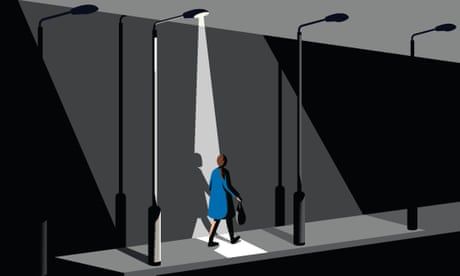
Labour won’t achieve its aim of reviving the UK’s economy until it takes the plight of cash-starved councils more seriously
All over the country, the lights are going out. The level of need for adult and children’s care is constantly increasing. People are still suffering the dire human effects of the pandemic. Thanks to the long years when Conservative politicians mercilessly cut the money that went from Whitehall to councils, the fear of municipal bankruptcy now stalks scores of places. And after years of cuts, in the face of other rising costs – including funding special needs education and providing temporary accommodation for those who are homeless – the local politicians who have to somehow find a way through all this face an impossible question: how else can they reduce their spending? The answers involve vital services. But as winter bites and the nights draw in, one set of savings comes with an awful symbolism.
Our streetlamps are being dimmed, switched off and left broken: over the past 15 years, the majority of councils are reckoned to have taken such decisions. And, of course, this great switch-off is bound up with all the other ongoing local cuts: to social work, road maintenance, transport for disabled people, domestic abuse services, youth clubs, libraries, leisure centres, bus subsidies, parks, and more. For millions of people, the continued hacking down of the most basic amenities and infrastructure seals a sense of deep neglect, and the feeling that politicians at the top choose to look away. When Rachel Reeves gave her budget speech a few weeks ago, she repeated a stock Labour line: “I said there would be no return to austerity; that is the choice I have made today.” The truth is that local austerity is not just grinding on, but getting worse.
John Harris is a Guardian columnist
Continue reading...